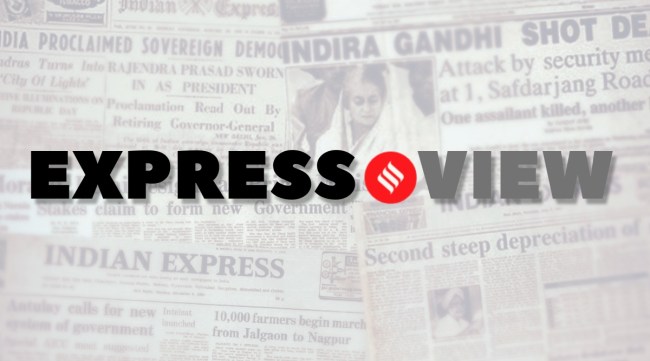Opinion As Karnataka government stokes old faultlines, the price must be paid by the state
Karnataka is the only southern state where the BJP has the organisational spread and depth to win elections on its own. But evidently, the party, beset by corruption scandals and infighting, seems unsure of its governance record.
 Bengaluru's evolution as the symbol of India's tech prowess has much to do with successive state governments nurturing a liberal, cosmopolitan milieu.
Bengaluru's evolution as the symbol of India's tech prowess has much to do with successive state governments nurturing a liberal, cosmopolitan milieu. Two courts delivered separate orders on Ganesh Chaturthi celebrations in Karnataka on Tuesday: The Supreme Court said no to holding the puja at the Bengaluru Idgah ground whereas the Dharwad-bench of Karnataka High Court allowed it at the Hubbali maidan. The HC accepted the claim that the Hubbali-Dharwad Municipal Corporation, though it had leased out the Hubbali Idgah ground to Anjuman-i-Islam for 999 years, has rights over the land and could allow puja there. In the Bengaluru case, the SC ruled in favour of status quo — only Muslims have held religious functions at the Idgah in the past 200 years — and asked the Wakf Board and the state government to settle the title dispute in the HC. What is common to both the disputes, however, is the disturbing role of the state government in seeking to facilitate Hindu religious functions in the face of Muslim claims over the properties. This Idgah politics follows a disquieting pattern wherein the government and the ruling party, the BJP, are seen to be stoking old disputes, whose only outcome can be greater communal polarisation.
Karnataka is the only southern state where the BJP has the organisational spread and depth to win elections on its own. But evidently, the party, beset by corruption scandals and infighting, seems unsure of its governance record. With assembly elections due in 2023, it has chosen to project itself as a custodian of Hindu interests. Under B S Yediyurappa, the BJP’s most prominent face in the state, the party had mostly pursued a communitarian politics by patronising religious sects and mutts. That, however, did not help the party to win the 2018 assembly elections — it cobbled a majority in 2019 by winning over legislators from the Congress and JD(S). With Basavaraj Bommai as chief minister, however, the party has actively campaigned on issues such as a ban on hijab in educational institutions and pursued a contentious anti-conversion law. A section of the BJP itself, including Yediyurappa, had to call for an end to “divisive politics” after attacks on Muslim traders. The constant chatter that Bommai, originally from the Janata parivar, could be replaced appears to have made the CM promise a “Yogi style of administration” to win over the Hindutva hardliners.
Such polarising politics has a price that the state will pay. Bengaluru’s evolution as the symbol of India’s tech prowess has much to do with successive state governments nurturing a liberal, cosmopolitan milieu. This imagination is now actively challenged by sectarian groups, which are patronised, unfortunately, by the ruling party.






